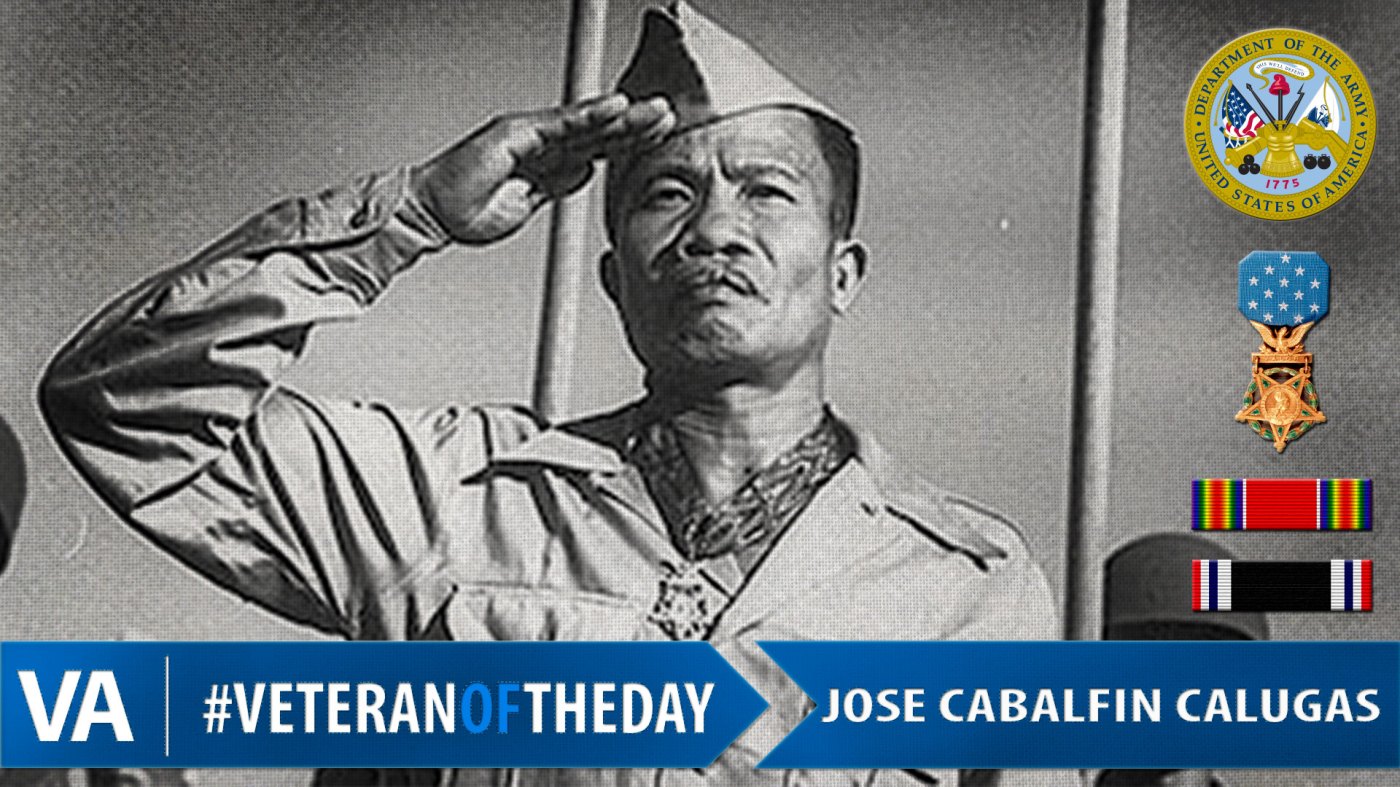Today’s #VeteranOfTheDay is Army Veteran Jose Cabalfin Calugas.
In 1930 at the age of 23, Jose joined the Philippine Scouts of the U.S. Army. After graduating from basic training in Fort Sill, Oklahoma, he was assigned to Company C, 24th Artillery at Fort Stotsenburg, Pampanga. The Philippine Scouts trained vigorously. They were excellent marksmen and each spring teams of their most outstanding experts were sent by each regiment to Camp Perry, New York, where they competed effectively against the best in the U.S. Army.
On the morning of December 8, 1941, the Scouts were awakened to learn that they were now in the war for which they had been trained. At the time the United States and the Philippine Commonwealth declared war on Japan, Jose was a mess sergeant with Battery B, 88th Field Artillery Regiment. His unit was mobilized for duty and sent to Bataan in December 1941.
On Jan 6, 1942, Jose was on KP duty in charge of a group of soldiers preparing the day’s meals. He noticed that one of his unit’s guns had been silenced, and its crew killed. Without orders, he ran and crawled more than a half-mile under severe fire to try to fix the jammed U.S. gun. Once there, he organized a squad of 16 volunteers to return Japanese artillery fire. They held that position for several hours, holding off the Japanese as U.S. troops dug in. That night after the battle subsided, Jose returned to the mess hall to finish his KP duty and feed the rest of the soldiers. For these actions, he was awarded the Medal of Honor.
Four months later, U.S. forces in the Philippines surrendered to the Japanese. Jose was captured and sent on the two-month Bataan Death March, where a slowed step meant a bayonet in the ribs. He spent another nine months in a prison camp. Then he worked in a Japanese-controlled rice mill where he set up a spy network for Philippine guerrillas. When U.S. troops returned to the Philippines, Jose fought with them.
Jose was the only Filipino to earn the Medal of Honor during World War II, presented to him in 1945 by Gen. George Marshall. When he received the Medal of Honor, he was offered American citizenship and the chance to become an officer. He retired with the rank of captain and carved out a successful business career in the Pacific Northwest.
Jose passed away in 1998 at the age of 90. We honor his service.
Nominate a Veteran for #VeteranOfTheDay
Do you want to light up the face of a special Veteran? Have you been wondering how to tell your Veteran they are special to you? You’re in luck! VA’s #VeteranOfTheDay social media feature is an opportunity to highlight your Veteran and his/her service.
It’s easy to nominate a Veteran. All it takes is an email to newmedia@va.gov with as much information as you can put together, along with some good photos. Visit our blog post about nominating to learn how to create the best submission.
Topics in this story
More Stories
This week’s Honoring Veterans Spotlight honors the service of Army Veteran Albert Tristan, who served during the Vietnam War.
This week’s Honoring Veterans Spotlight honors the service of Marine Corps Veteran Rodney Sickmann, who served in Iran.
This week’s Honoring Veterans Spotlight honors the service of Army Veteran Mary Edwards Walker.






It seams evident to me that many of our Filipino brothers and sisters that participated in the war were not offered the rewards available to our mainland American soldiers. Only a single Filipino man was awarded the Congrssional Medal of Honor?
I find that appealing, but quite in alignment with the current social culture at that time.
Asking for correspondence to support having these brave countrymen and women recognized for their efforts in the fight against Japan in WWII.
Daniel Tacadena, OTTAWA IL
My uncle Amadeo Cabe was on the Baton death March but was able to escape. He was a young officer in the Philippine scouts. Some how he made it back to Quezon city and to his wife Nanette who hardly was not able to recognize him at the time since he lost so much weight. He worked for the underground during the war was elevated to a Captain when the war ended. He was later sent to the US by the Philippine government to the FBI school in Quantico to study ballistics.